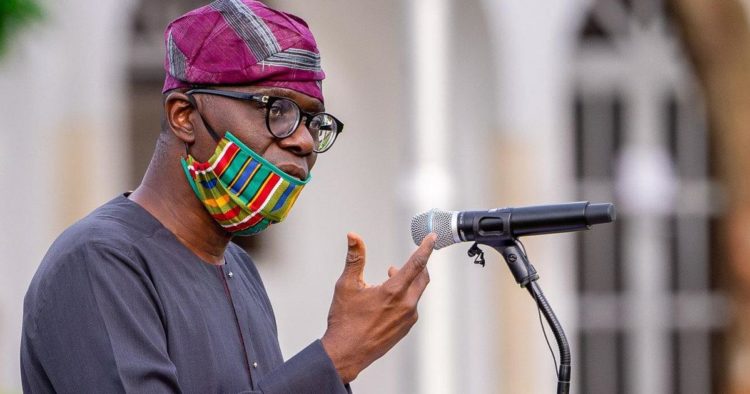Ayodele Olalere
Lagos State governor, Mr. Babajide Sanwo-Olu has disclosed the state has lost a significant percentage of his Internal Generating Revenue, IGR since the Coronavirus pandemic berth in the state.
He said the state is currently battling to save the state economy in the face of dwindling revenue.
The governor made the disclosure while speaking at a webinar organised by First Securities Discount House (FSDH) Group, with the theme: “A Global Pandemic: Local Realities and Peculiarities – A View from the Frontlines.”
The Governor was a panelist in the online discussion that also featured Governors of Kaduna and Edo states, Mallam Nasir el-Rufa’i and Godwin Obaseki respectively.
READ ALSO: https://www.thexpressng.com/2020/05/22/i-do-not-have-personal-debt-collectors-malami-says/
Therefore in order to rejig the state economy, the governor said the state government has began the process of re-opening its economy beginning with the rollout of Register-to-Open guidelines.
According to Sanwo-Olu, the state government daily battles with keeping the state economy floating as a result of the harsh impact of the COVID-19 on the state finances.
He said balancing economic activities and the continuation of the state’s response to contain the Coronavirus (COVID-19) pandemic has been herculean task.
He said two weeks of lockdown has slowdown economic activities in the state, making it difficult to keep the economy afloat.
The governor added to maintain the ongoing phased re-opening of the State economy, government had offered incentives that will affect its Internally Generated Revenue (IGR) in order to prevent job loss in critical industries that provide employment for a large number of labour.
READ ALSO: https://www.thexpressng.com/2020/05/22/trump-finally-wears-face-mask-but-not-in-public/
Sanwo-Olu said the state government remained committed to tackling COVID-19 and breaking the cycle of its transmission, but added that there was need to address hunger and job loss that could arise from prolonged lockdown of the economy.
“We have been caught in a very delicate situation between managing COVID-19 on one hand and managing hunger and sustaining an economy that is not only depended on commercial activities in Lagos alone, but also other states across the federation. We have had weeks of engagement with players in fast-moving consumer goods sector and part of the measures we are taking is that, we are giving them additional clearance to work for longer hours.
“Besides, we initiated what we called Register-to-Open, which is a thorough guideline to help the residents ahead of the full re-opening. Some of the things we will be seeing in the four-page guideline is, how we want to manage space at various places of business and what numbers of personnel and clients we expect at a given period, which must be based on the sizes of the facilities. As we prepared for this phased re-opening, we are giving priority to sectors that have higher number of labour.”
He added sectors such as construction and manufacturing would be accorded high priority’s for full re-opening, given the large number of employment they generate, followed by entertainment, hospitality and aviation industries.
He added other sectors that have been adversely affected are Micro, Small and Medium Enterprises (MSMEs), stressing that millions of small-scale businesses operating in the state could completely fold up if the economy is not fully reactivated.
While answering question on the biggest effect which COVID-19 had on State economy, Sanwo-Olu said:
“Lagos has been affected both on the healthcare and economy’s sides. We have had to take a deep dive into our budget and have about 25 per cent cut, which is not very good number for us. This is the time we need to continue to spend to stave off pressure on our citizens. However, we need to be prudent at this time and cut unimportant expenditures. Salary is one thing we cannot even touch.
“In terms of direct economy, entertainment industry, hospitality, land transportation and aviation businesses have been affected significantly. These sectors are large employers of labour. We are thinking through on how to reset these sectors in a graduated manner and bring back the economy on the full swing.”


